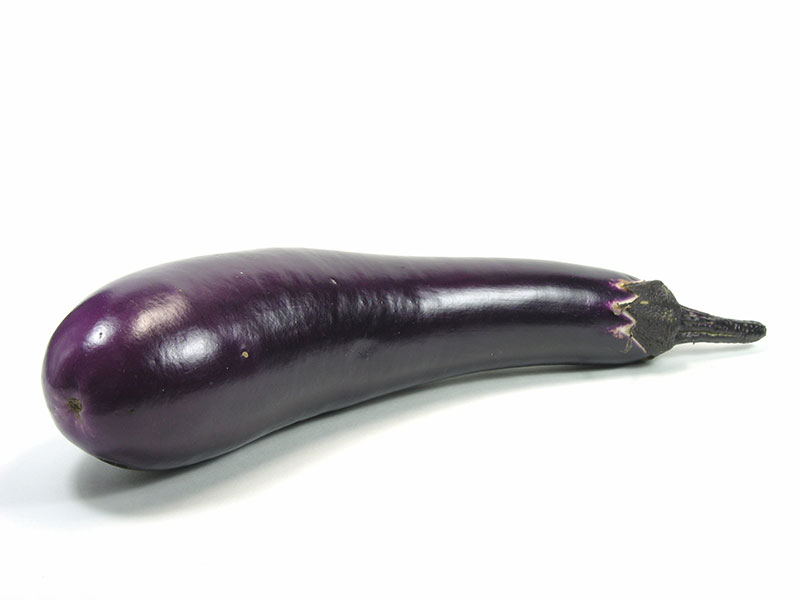Eggplant, Japanese

Availability:
Year-round
Availability:
| J | F | M | A | M | J | J | A | S | O | N | D |
Notice:
on demand
Receiving/Storage:
Receiving Information: Ethylene-sensitive. Do not store or transport with commodities that produce ethylene.
Odor sensitive. Do not store next to ginger or onions. Susceptible to chilling injury. Eggplant is sensitive to temperature extremes and requires a cool atmosphere to cut moisture loss. If left at room temperature for several days, produce becomes soft and wrinkled. Small scars on eggplant, commonly caused by wind, do not affect quality. Storage/Handling: Temperature/humidity recommendation for short-term storage of 7 days or less: 46-54 degrees F. 90-95% relative humidity.
Description:
Originally from India, eggplants are now distributed throughout almost every tropical, subtropical, and temperate climatic zone. This perennial member of the nightshade family, which is grown commercially only as an annual, bears fruits up to 1 foot in length, 2-5 inches in diameter, and up to 1 1/4 pounds in weight. While oval, dark purple eggplants dominate the market, shapes and colors vary considerably. Japanese Eggplants taste considerably milder and sweeter than the more traditional eggplants and may not need to be salted before cooking. They can be readily identified by their large purple calyxes. Flavors complementary to eggplant include olive oil, dark sesame and roasted peanut oils, cream, Parmesan, ricotta, goat cheese, Gruyere, feta, yogurt, tahini, garlic, basil, peanuts, pine nuts, ginger, soy, cilantro, saffron, lemon, red wine vinegar, balsamic vinegar, tomatoes, peppers, onions, summer squash, chickpeas and potatoes. Eggplant has been found to help aid in the protection of brain cells. It also contains important antioxidants, which have been linked to a decreased occurrence of cancer and have been shown to help reduce cholesterol in studies on animals.


